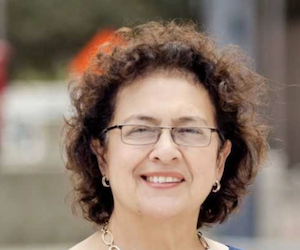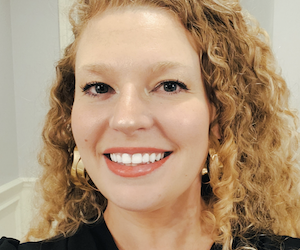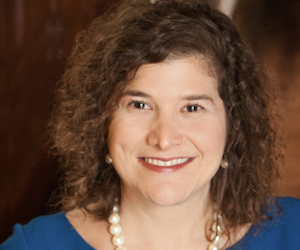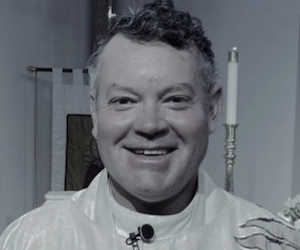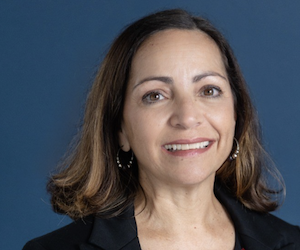Douglas Jeffrey Greco, 53, is one of four candidates (so far) who’s campaigning to be Austin’s mayor in 2025.
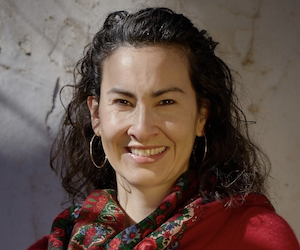
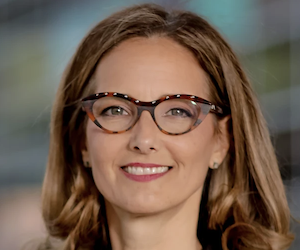
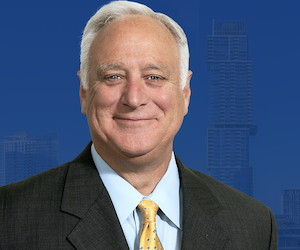
Greco trying to unseat incumbent Mayor Kirk Preston Watson, 66, who raised and spent $2 million to win his third term in 2022. He was first elected mayor in 1997, was reelected in 2020, and resigned in 2021 to run for Texas attorney general.
He’s also running against two other challengers:
Carmen Dolores Llanes Pulido, 39, is a native Austinite, second-generation activist, and longtime organizer with multiple community organizations.
Kathryne Beth Tovo, 54, won election to the City Council three times and served for more than 11 years ending in 2022. Tovo appointed a campaign treasurer to run for mayor in 2022 but then chose not do so.
Detailed profiles about the other three mayoral candidates will be published later, in alphabetical order.
Leaving activism for shot at making policy
To compete with his better known opponents Greco will draw on his long experience as an organizer for multiple organizations, including the nonprofits Austin Interfaith and Austin Interfaith Sponsoring Committee.
To get his campaign underway, in late January Greco resigned from those organizations, which in 2022 paid him a combined salary of more than $144,000, plus more than $10,000 in “other compensation,” according to the latest publicly available tax returns.
Greco told the Bulldog he has lived in Austin off and on since 1997. He arrived a few years after graduating from Brown University with a bachelor’s degree in economics and began teaching at Johnston High School (later renamed Eastside Early College High School).
He taught at Johnson for five years ending in 2002, an era in which the school went through seven principals, a claim substantiated by his campaign treasurer, Claudia Kramer Santamaria (more about her later). “It was kind of a crisis at a time with high turnover, and challenging,” Greco said. “What sustained me was getting involved in community organizing to build stable engagement in school.”
He left teaching to be an organizer with Austin Interfaith. In late 2003 he moved to San Antonio to work as senior organizer with Communities Organized for Public Service (COPS). (Austin Interfaith, Austin Interfaith Sponsoring Committee, and COPS are all partners with the Industrial Areas Foundation, a network of religious congregations, civic organizations, unions, and nonprofits that work to achieve lasting change in the world.)
Greco returned to Austin in 2007 to work as lead organizer and executive director of Austin Interfaith, which he helped to expand and change its name to Central Texas Interfaith (although its tax returns are filed under the organization’s original name). He left in 2012 to earn a master’s degree in public policy from Princeton University, where he graduated in 2013, he said.
After Princeton he relocated to California (more about that later), then moved back to Austin to serve as chief of staff for State Representative Gina Hinojosa (D-Austin) during the 2017 regular and special-called legislative sessions.
That was the year big battles were fought over the so-called “bathroom bills” pushed by Republicans to restrict the rights of transgender individuals and deny them access to public facilities. Those bills were ultimately defeated and haven’t resurfaced.
“Doug Greco was a hard-working and conscientious chief of staff for my first session in the House,” Hinojosa told the Bulldog. “I knew him from my prior volunteer organizing days at Austin Interfaith. I have the utmost respect for him and gratitude for his contribution to our community and to my development as a leader in Austin.”
Issues central to Greco’s campaign
Greco intends, if elected, to challenge Governor Greg Abbott’s attacks on local decisions.
He wants to focus on affordability—the lack of which is pushing working people out of Austin. Affordability is a political buzzword on every candidate’s lips, but what would Greco actually do to help?
“My priority is affordability through workforce development, education, and living wages. We need to train people and help them get jobs that are already here and commit to living wages, over $20 an hour.
“We need to address affordable housing, rental assistance, and homeless issues. We need to pay police, fire, and EMS… I’m big on thinking about how folks are earning enough to stay in Austin, compete for jobs here, and not move out of the city.”
In addition, Greco wants to prevent institutional investors from gobbling up single-family homes so that people who will actually want to live here have a chance to compete with offers. To that end, his former boss, Representative Hinojosa, filed two bills aimed at fixing that problem for the 2023 legislative session.
HB 1056 would have required financial institutions or investment firms that own and offer a dwelling for lease to register the number of dwellings owned in each county with the Texas Comptroller. The comptroller would have been required to publish a searchable registry on its website.
HB 1057 would have barred investment firms from entering a contract to purchase a single-family home listed for sale before the 30th day after the date the home is listed.
Both bills were referred to the Business and Industry Committee, where no action was taken. Those bills are dead. The issues are not.
The Texas Tribune reported March 15th that Governor Greg Abbott has weighed in: “I strongly support free markets,” Abbott wrote on the social media site X… “But this corporate large-scale buying of residential homes seems to be distorting the market and making it harder for the average Texan to purchase a home. This must be added to the legislative agenda to protect Texas families.”
Unless Abbott calls a special session that can’t be considered before the 2025 session.
Meanwhile, Greco would like to the city to make grants or loans to home owners so they could make improvements or build additional dwelling units. “I also support mortgage and rental assistance programs for similar reasons,” he said.
Money always a campaign issue
As the Bulldog reported, Kirk Watson spent $2 million in his 2022 mayoral campaign. The opponent he narrowly defeated in a runoff, Celia Israel, spent more than $707,000.
Greco said his fundraising goal is “more along the lines of Celia’s. I don’t need million and a half.”
He said his goal for the July 15th campaign finance report, which will show fundraising through June 30th, is to hit “six figures” and afterwards “scale up from there.”
Greco has some personal experience in fundraising, but not the kind that’s necessary in retail politics. He founded Ground Strategies LLC in January 2022, according to records maintained by the Texas Secretary of State. Under a “small contract” he said he raised foundation money for the Organizing Institute of Southwest Industrial Areas Foundation.
Greco recently returned from a fundraising event in Sarasota, Florida, where family and friends turned out to show support.
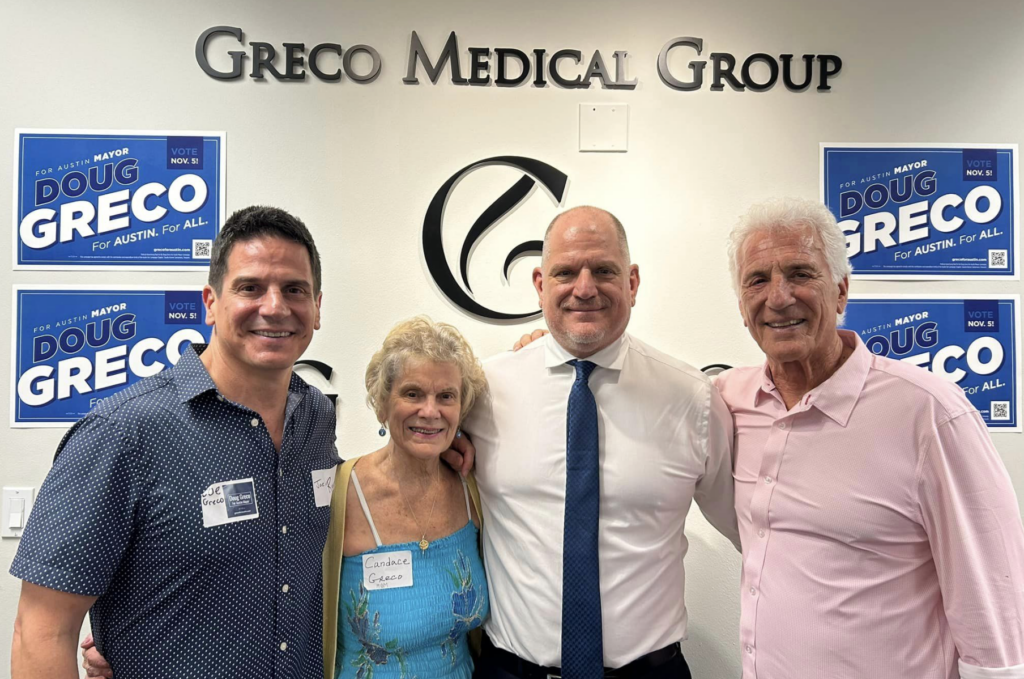
Greco said he will be focused on using any money he raises mainly for door-knocking and mailing campaign literature. “Big money stuff costs more but is not as efficient.
Greco recently hired Mariana Krueger to manage his campaign. He said that she most recently served as organizing director for District Attorney Jose Garza’s primary campaign. Krueger is well connected through her appointments to city commissions by three council members. She is Jose Velasquez’s appointee to the Environmental Commission, Zo Qadri’s appointee to the LGBTQ Quality of Life Advisory Commission, and Paige Ellis’s appointee to the Human Rights Commission.
He said he has not hired a campaign consultant, but instead is relying on “advice from those who have run campaigns. I spent more than 15 years with the Industrial Areas Foundation. I need folks who have run the mechanics of a campaign. I have a big circle of colleagues.”
“I have taken the fair campaign pledge,” Greco said, referring to the Code of Fair Campaign Practices, by which candidates are encouraged to follow the basic principles of decency, honesty, and fair play.
He has also signed the Candidate Contract, which, per Austin City Code Section 2-2-12, limits a mayoral candidate from making expenditures that exceed $120,000, plus an additional $80,000 in a runoff. That would qualify him for a share of whatever funds are in the Austin Fair Campaign Fund, should he make it into a runoff. Plus, if even one other mayoral candidate does not sign the Campaign Contract, that releases him from the limitations. All three of his opponents have not signed a Candidate Contract, according to their websites.
Making it into a runoff is what he’s shooting for. And a runoff could very well be needed in a mayoral election with four viable candidates.
In Kirk Watson’s May 6, 2000, mayoral reelection victory, he thumped three opponents by getting 84 percent of the votes. However, none of his opponents were viable candidates. His bid for reelection in 2024 seems to promise an entirely different scenario.
Criticizes Mayor Watson
Greco faults the incumbent mayor for failing to stand up for the civil rights of some 60 University of Texas employees who were terminated because their jobs involved diversity, equity and inclusion. In an April 3rd press release, Greco stated, “ Austin Mayor Kirk Watson should immediately convene community leaders, UT students, local nonprofits, local legislators, and public entities to determine how our community can replace some of the student resources and programs UT has cut in response to Texas’ new anti-DEI law.”
The release mentioned that on February 21st Greco had called on the city to step up. “Where the state has failed LGBTQ students at UT, the City of Austin needs to lead.”
On April 24th, via Watson’s campaign website, the Bulldog asked the mayor to comment on these criticisms. No response has been received.
In addition to pushing these issues through criticism, Greco’s campaign will stress that he is intent on maintaining a “seat at the table” in politics to protect LGBT rights.
“I want to be a mayor that creates space for LGBT rights, civil rights, and immigrant rights. I want to open up the process for others, with everyone at the table to address long-term issues,” he said.
Legislative victories
Greco is a novice at running for elective office but he’s no stranger to political battles. In addition to his year as a chief of staff for Representative Hinojosa, his website claims that he “led efforts with (Central Texas Interfaith’s) Texas (industrial Areas Foundation) Network to kill the state’s largest corporate welfare program, Chapter 313, which took over $1 billion a year in potential school funding and instead gave it to multinational oil and gas companies.”
At the Bulldog’s request, he backed up that claim with proof.
The Intercept published a detailed article about this issue: “We thought it would be a victory if the two-year reauthorization passed so we could organize in (the) interim,” said Doug Greco, the lead organizer for Central Texas Interfaith.” Then, time ran out and the bill never came up.
“The lapse in authorization coincided with three other groundbreaking blows to oil and gas corporations,” The Intercept article states: “A Dutch court ruled that Shell Oil is liable for its climate impacts and must reduce its greenhouse gas emissions. Exxon Mobil shareholders booted out two members of the corporation’s board of directors for its failures on the climate crisis. And Chevron shareholders voted to force the company to cut its emissions.”
Locally, the battle continued into the 2023 legislative session. The end result was a replacement for Chapter 313 that “is a much more accountable program in terms of increasing wages and job requirements, cutting the tax abatement from 100 percent to 50 percent, and eliminating ‘kickbacks’ (side payments) to school boards and school districts to induce them to give the tax break,” Greco told the Bulldog.
“This was by far my most significant legislative work with Central Texas Interfaith and our state network and Texas Industrial Areas Foundation, and one in which I coordinated organizing efforts. We fought the largest business interests in the state for three years (oil and gas companies, manufacturers, and Texas Association of Business), brought them to the table after killing Chapter 313, and ensured its replacement was…a much more accountable program.
“I think the Mayor of Austin needs to have the ability to stand up and take on big money interests locally and at the state level, and those that represent them,” Greco said.
Could Austin elect a gay mayor?
Greco is a single, openly gay man, who says he does not have a domestic partner.
But how does a person’s sexuality matter in politics, if at all?
In the Texas Legislature it seems to matter a great deal. The Texas Tribune reported in March 2023 that the Texas Legislature includes nine lawmakers who are openly LGBTQ, all Democrats. Still, that’s not a big number, given that Democrat Glen Maxey was the first openly gay candidate to win election to the Texas House of Representatives. That was in 1991—32 years ago.
Today the Texas Legislature is dominated by Republicans, who generally are less than accommodating about sexual preferences. The Tribune in June 2023 reported that the Legislature banned puberty blockers and hormone therapy for trans kids, restricted college sports teams that trans athletes can join, and took a swipe at drag shows, too.
Notwithstanding the wishes of conservatives, sexual orientation hasn’t much mattered in metropolitan municipal elections in Texas.
In Austin, for example, voters have a long tradition of upholding gay rights at the ballot box. In January 1982, a solid majority of voters soundly rejected an amendment to the city’s Fair Housing Ordinance. The amendment would have allowed denial of housing on the basis of sexual orientation. The measure got on the ballot through petitioning by Austin Citizens for Decency, the group about which I wrote pre-election coverage for Third Coast magazine.
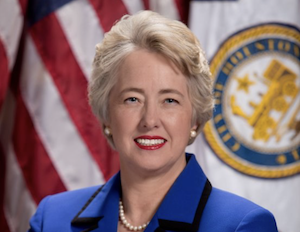
More recently in Houston, Annise Parker, a Democrat, became the first lesbian mayor of a major U.S. city when elected in 2009, and served from 2010 through 2016.
Openly gay Jimmy Flannigan was elected to the Austin City Council in 2016 to represent District 6.
And in Austin’s 2022 mayoral election voters demonstrated the majority do not care about a candidate’s sexual preference. They very nearly elected Celia Israel, a married lesbian, instead of Kirk Watson. With 114,188 votes cast, Watson’s margin of victory was 942 votes.
Like Parker and Israel, Greco is a Democrat. Since coming back from California and voting in Travis County since 2017, he has voted in six Democratic and no GOP primaries. This according to voting history records published by the Travis County Tax Office.
But LBGTQ+ bashing still exists
Aside from the heated legislative battles fought over the defeated “bathroom bills” in 2017, there is an element outside the Texas Legislature that continues to push back against anything involving the rights of people who are not unambiguously heterosexual.
Greco’s sexuality and activism on these issues came under blistering attack in 2022.
The Virginia-based Lepanto Institute used Greco’s identity to go after his employer, the Austin Interfaith Sponsoring Committee (AISC). The article was triggered when the AISC was awarded a $60,000 “Economic Justice” grant by the Diocese of Austin, which is overseen by Bishop Joe Vasquez.
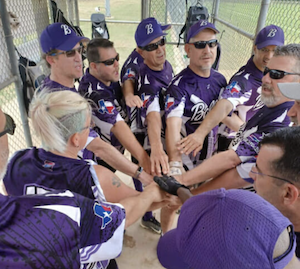
A nine-page article published by the Lepanto Institute begins with, “At issue with this (grant) is the fact that Austin Interfaith, and its leader, is openly promoting transgender and homosexual ideologies.”
The article even slammed Greco for being on a gay softball team, the Austin Ball’rz, which he says has made it to the Gay Softball World Series the last four years running.
The article concludes with, “Austin Interfaith is led by an LGBT activist who has clearly used his position in a CCHD-funded (Catholic Campaign for Human Development) organization to promote transgender and homosexual ideologies. His history of support for same-sex ‘marriage’ and the genital mutilation of children [which Greco said he is not in favor of, though he does support gender-affirming care] makes him a clear danger to sound morals and the Catholic faith at the very least.
“Outside of the Catholic faith, he is a menace to the common good. Given this, no Catholic could ever, in good conscience, ever give to Austin Interfaith.”
Greco takes the attack in stride, calling it a “badge of honor.” But he emphasizes that he did not use his position with Interfaith to advocate on LBGT issues. “All that advocacy work was outside my job or when I was not with Interfaith.”
Strong advocate for equality
Make no mistake though, Greco is very much an outspoken advocate for LGBT rights.
In April 2015 he became director of programs for Equality California, which bills itself as “the largest statewide LGBTQ+ civil rights organization in California.” (This position was listed in his application to be Representative Hinojosa’s chief of staff, which the Bulldog obtained with a public information request.)
In June 2015, while Greco worked with Equality California, the U.S. Supreme Court legalized same-sex marriage in Obergefell v. Hodges. That was hugely important nationwide but perhaps even more so in California where voters in 2008 had amended the state constitution to ban the practice.
Greco’s application also shows that in the latter half of 2016 he worked in California as senior organizer for One LA, “a broad-based organization, made up of member congregations, schools, and nonprofits who shape the organization’s agenda and teach their constituents how to be effective public people.” One LA is also affiliated with the Industrial Areas Foundation.
A scholarly approach to civil rights
Greco’s application to work for Hinojosa states that he earned a master’s degree in public policy from Princeton University. He said he got a second master’s degree in creative writing from the University of Southern California.
Furthering his work in civil rights, he wrote a small book that explores the civil rights movement both nationally and internationally: To Find a Killer: The Homophobic Murders of Norma and Maria Hurtado and the LGBT Rights Movement (Histria Books 2023, 134 pages).
Greco’s impetus for writing the book was the April 2011 murder of Norma Hurtado, a 24-year-old lesbian who had once been his student in a ninth-grade geography class back at Johnston High School.
Jose Aviles, the father of Norma Hutado’s girlfriend, objected to the relationship. He killed Norma Hurtado by firing 15 rounds into her body, and one more into her mother, Maria Hurtado. Both died instantly. Aviles fled but was caught, tried, convicted, and sentenced to life in prison without parole.
Hurtado’s murder, Greco said, “got me thinking about being a gay man and how to integrate my IAF experience with my interest in the LGBTQ movement.”
Although the book begins and ends with these murders, it covers a range of issues related to LGBT rights. Chapter 5 details LGBT history in political organizing. Examples include José Sarria, whose New York Times obituary published in 2003 states, “many historians contend (he) was the first openly gay person to campaign for public office in the United States, when he ran for San Francisco’s Board of Supervisors in 1961.”
Sarria blazed the trail for Harvey Milk, who in 1977 won a seat on that same Board of Supervisors. Only to be shot and killed in 1978 along with Mayor George Moscone, in scenes vividly reenacted in the 2008 movie, Milk.
I profiled Austin’s first openly gay mayoral candidate, Eric Silvernale, for my In Fact newsletter November 15, 1995.
Holding politicians accountable
Interfaith, where Greco got his start in organizing more than two decades ago, hosts candidate forums unlike any other. Interfaith calls these public events “Accountability Sessions.” Candidates are invited to hear stories about issues that are hurting families and communities. Then the candidates are asked “straight questions” about where they stand on those issues.
To generate interest in elections, Interfaith’s member institutions let the public know how the candidates responded to Interfaith’s issues. Member institutions include congregations, unions, and nonprofits that collectively turn out many hundreds of volunteers to block walk, sign up supporters, and get out the vote.
But Interfaith’s work doesn’t end there. When candidates are elected, Interfaith leaders watch and work to hold them accountable.
Watson launched with massive support
Mayor Watson on April 10th launched his campaign by announcing endorsements from 55 elected or former elected officials from all over central Texas. The list included former Austin Mayors Lee Cooke, Lee Leffingwell, Ron Mullen, and Will Wynn, plus seven of the nine current Austin council members.
Noticeably absent from the list of endorsing council members were Mackenzie Kelly, who is running for reelection in District 6 and did not want to comment, and District 10’s Alison Alter. Alter told the Bulldog, “Unlike in 2022, in 2024 I will not be endorsing Kirk Watson for mayor because I have learned that when someone shows you who they are, (you should) believe them.
“Watson has acted as a bully and prevented real policy deliberation by members of the council and the public,” Alter said.
People who know Greco
Greco can’t compete with Watson’s two score and 15 high-profile endorsements. But he does have character references and initial supporters.
The Reverend Miles Brandon II, clergy leader of St. Julian of Norwich Episcopal Church in Round Rock, is on the board of Central Texas Interfaith. That’s where Greco worked as lead organizer until resigning in late January to run for mayor.
In describing Interfaith’s volunteer efforts in block-walking, Brandon said, “We focus particularly on districts with low voter turnout. In post-election reviews we find that after working in those districts, people vote at the same level or higher than traditional high-turnout districts.”
“As a leader in Central Texas Interfaith,” Brandon said, “it’s important to say that as community organizers we do not have political parties. We do not endorse candidates. We have issues to work on in the community and in this election cycle we will be working with everyone running for mayor without partiality.
“Doug was a good leader for us but now as a person running for office he will be treated like all candidates.”
In describing Greco’s character, Brandon said, “He’s a person of deep faith, active in the Episcopal Church, and really cares about people. He genuinely wants everyone to flourish, especially those who are underrepresented.”
The vicar went on to say that “Doug is fiery and passionate about the things he believes in deeply. He has a really good political acumen, understands political nuances, and how to deduce policy to make change and get people to work together. He is very well organized and has already been thinking about some of the most important issues, including eradicating homelessness, economic development, and affordability in housing.”
Back when Greco was teaching at Johnston High, Claudia Kramer Santamaria, PhD, was principal at another Austin ISD school. She said she saw Greco speaking at Austin Interfaith’s Accountability Sessions and was impressed.
“I kept running into Doug and found him to be person of high integrity. He loved teaching at Johnston, and was a leader there, trusted. I got to know him and worked with him.
“Later he became a paid organizer at Austin Interfaith and I did too. He used to work on funding for schools, leadership, after-school programs, and integration issues.
“A lot of families are undocumented and didn’t feel safe coming to school meetings,” she said. “I saw Doug with neighborhood people, helping them to ask questions so could advocate for themselves.”
Santamaria is not only Greco’s campaign treasurer but also volunteers to help boost his chances as a candidate.
Santamaria said her reasons for supporting Greco’s mayoral bid go far beyond specific issues, “It’s about people being impacted by issues and organizing to make changes. He understands what people of lesser incomes and resources are experiencing. He ‘gets it.’ ”
She notes that Greco was raised by a single mom, although he told the Bulldog, “My dad was still a strong presence in my life.” Greco’s blog, “Yellow Pig,” documents much of his family’s life and ancestors, and what it was like to grow up in the Coal Region town of Mt. Carmel, Pennsylvania.
The only elected or former elected officials who have so far been announced to endorse Greco are Austin ISD Trustee Ofelia Zapata, a longtime leader at Austin Interfaith, and former AISD trustee Ann Teich, a community organizer and union member.
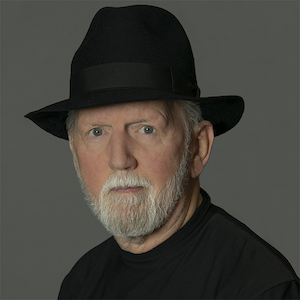
Trust indicators: Ken Martin has been reporting on elections in Austin and adjacent Williamson and Hays counties since 1981.
Related Bulldog coverage of 2024 elections
First-ever opportunity to elect appraisal board members, February 29, 2024
They’re off and running for council, January 19, 2024
District 10 candidates jump in early, December 14, 2023
Siegel running for City Council District 7, October 31, 2023



